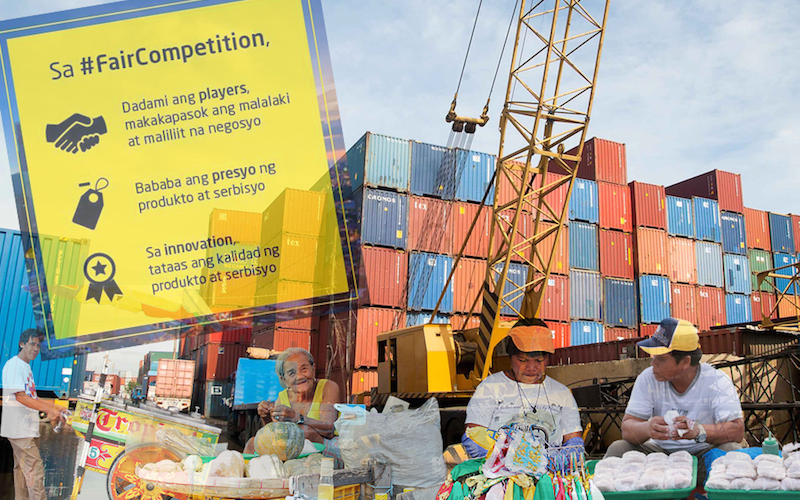Sen. Bam lauds Malacanang for Including Measures for Small Businesses in Priority Legislation
Senator Bam Aquino has lauded Malacanang for including his two priority measures that will further help in the development of the micro, small and medium enterprises (MSMEs) in the country in its legislative agenda.
“We thank Malacanang for including the Cabotage Law and the Fair Competition Act in its legislative agenda,” said Aquino, chairman of the Senate Committee on Trade, Commerce and Entrepreneurship.
“Through this, I expect the swift passage of these measures that I see as crucial to our economic growth, job generation and level playing field for all businesses,” the senator stressed, adding that he is committed to work for the passage of the two measures.
“These measures have been in the legislative pipeline for a long time. Finally, some political will to get difficult reforms passed which are pro-poor, pro-business and will lower cost of goods,” he added.
Passed by the Senate on third and final reading, Senate Bill No. 2282 or the Fair Competition Act of 2014 aims to shield small business owners and consumers from companies engaged in unfair business practices, which usually lead to increase in prices of basic goods and services.
Aquino said a fair competition policy will level the playing field for Filipino businesses and allow more Filipinos to exercise their entrepreneurial spirit.
“The bill puts in place measures that will protect the welfare of businesses and protect honest, hard-working entrepreneurs against abuse of dominance and position, and other unfair practices that put both Filipino businesses and their consumers at risk,” Aquino said.
If passed into law, the senator said Filipinos will enjoy a wider range of high-quality products and services at reasonable prices.
Aquino also filed Senate Bill No. 2364, which seeks to amend Section 1009 of the Presidential Decree No. 1464, otherwise known as the Tariff and Customs Code of 1978, to lower local shipping cost in the country.
If enacted into law, foreign ships will be allowed to call in multiple ports provided that their cargoes are intended for import or export and duly cleared by the Commissioner of Customs, leading to lower cost.
The senator has filed the bill in response to President Aquino’s call to relax the country’s policies on cabotage.
It was discovered that it is cheaper to send products from other countries to the Philippines than to ship goods within the country.
For example, the cost of shipping a 20-foot equivalent unit (TEU) from Kaoshiung, China to Cagayan de Oro is $360 or P16,000 only.
However, the cost of shipping the same cargo from Manila to Cagayan de Oro will take $1,120 or almost P50,000.
“We’d like to put these policies in place this year to sustain the momentum of our growth we’ve experienced the past few years,” Aquino added.


Recent Comments